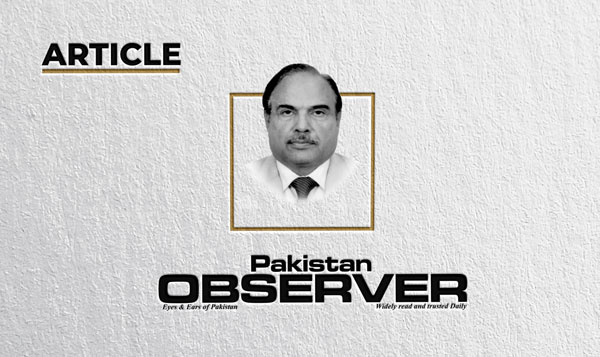Article-243 empowers PM to appoint COAS
General Asim Munir a soldier with considerable operational experience and a career steeped in intelligence has been designated as the country’s 11th Army Chief, after weeks of intense speculation about who will lead the powerful military following General Qamar Javed Bajwa’s impending retirement.
General Sahir Shamshad Mirza, another infantry officer with an enviable career, has been appointed as the Chairman of the Joint Chiefs of Staff Committee.
The two officers were also promoted from the rank of Lieutenant General to the four star General.
A statement by the presidency notifying the new military leadership said President of Pakistan has made these promotions and appointments under Article 243.4-A & B and Article 48.1 of the Constitution read with Section 8-A & 8-D of the Pakistan Army Act 1952.
It was initially speculated that President Dr Arif Alvi could return the Prime Minister’s advice for reconsideration because of Imran Khan’s reservations, but the process concluded without any hiccup.
President Dr Arif Alvi after receiving summary also made a brief trip to Lahore, where he held a nearly 45-minute long discussion with Imran Khan on the issue and signed the summary for appointment immediately upon his return to Islamabad.
It remained unclear what caused Imran Khan the change of heart and Imran Khan’s decision not to push ahead with a confrontation on this issue.
As per Rules of Business, Mr.Imran Khan has no role whatsoever in the appointment, he could have made the decisions look controversial by challenging them, as per earlier threats.
On the other hand, as per Article 243, it was mandatory for President of Pakistan to endorse the advice of Prime Minister of Pakistan as ritual.
President cannot consult with Party President and if President created any hindrance, it would likely be violation of Article 42 of the Constitution.
It is good sign of relief; the constitutional obligation has been solved amicably. Though promotions usually take effect from the date of assumption of command, but because of the technical hitch of General Munir’s impending retirement on November 27, both men were given promotions with immediate effect.
Therefore, the next few days would be rare as there would be four serving four star generals in the country, though the number of positions of generals in Pakistan Army is not fixed.
Soon after the notification of their promotion and new appointment, General Munir and General Mirza called on the President and Prime Minister and praised their professional excellence and patriotism and hoped that defence forces would benefit from their professional expertise.
The two Generals take over at an unenviable time. Deep polarisation has fractured the polity.
The bills for years of economic mismanagement and incompetence have become due and threaten to push the country under.
There will be many temptations to intervene to go beyond the mandate, as the outgoing Chief of the Army put it some days earlier but the defence forces must resist those temptations.
Pakistan’s new Army Chief will face two immediate tasks, rebuilding the country’s ailing economy and restoring public trust in the military establishment.
General Bajwa has started the process, one hopes it will carry on. Honestly and sincerely in the civil and military relationship may just be what is needed to make the country whole again.
Army Chief General Qamar Javed Bajwa admitted that the army for seven decades has unconstitutionally interfered in politics, and at the same time criticised political parties for erring and being intolerant towards rivals.
The rare candid admission by an Army Chief came at what could possibly be Gen Bajwa’s last public appearance before the change of command ceremony next week.
General Qamar Javed Bajwa’s farewell address at the Defence and Martyr’s Day ceremony was devoted to rumination on the army’s role in politics, perhaps in recognition of the fact that it is what his legacy will be defined by.
There was an effort to come clean, a somewhat grudging acknowledgement that part of the blame for where things stand lay in the military’s history of political interference.
But the General also assured that the establishment days of political management are now firmly over, that the institution has, since February 2021, closed the chapter on 70 years of unconstitutional political interference.
This momentary self accountability was inevitably followed by complaints. Though the military had made mistakes, the public and political parties had recently gone too far when critising the institution.
The military was first vilified for bringing in a selected government and then for an imported one, even though, in both cases, it had just been the politicians who could not accept defeat.
There was also clear annoyance with former Prime Minister Imran Khan, whose foreign conspiracy narrative has given much grief to the defence forces this year.
General Bajwa implored the audience how it could be that the defence forces would have done nothing had there really been a conspiracy against the government. At the end came olive branch.
—The writer is former Secretary Election Commission of Pakistan and currently Chairman National Democratic Foundation.










